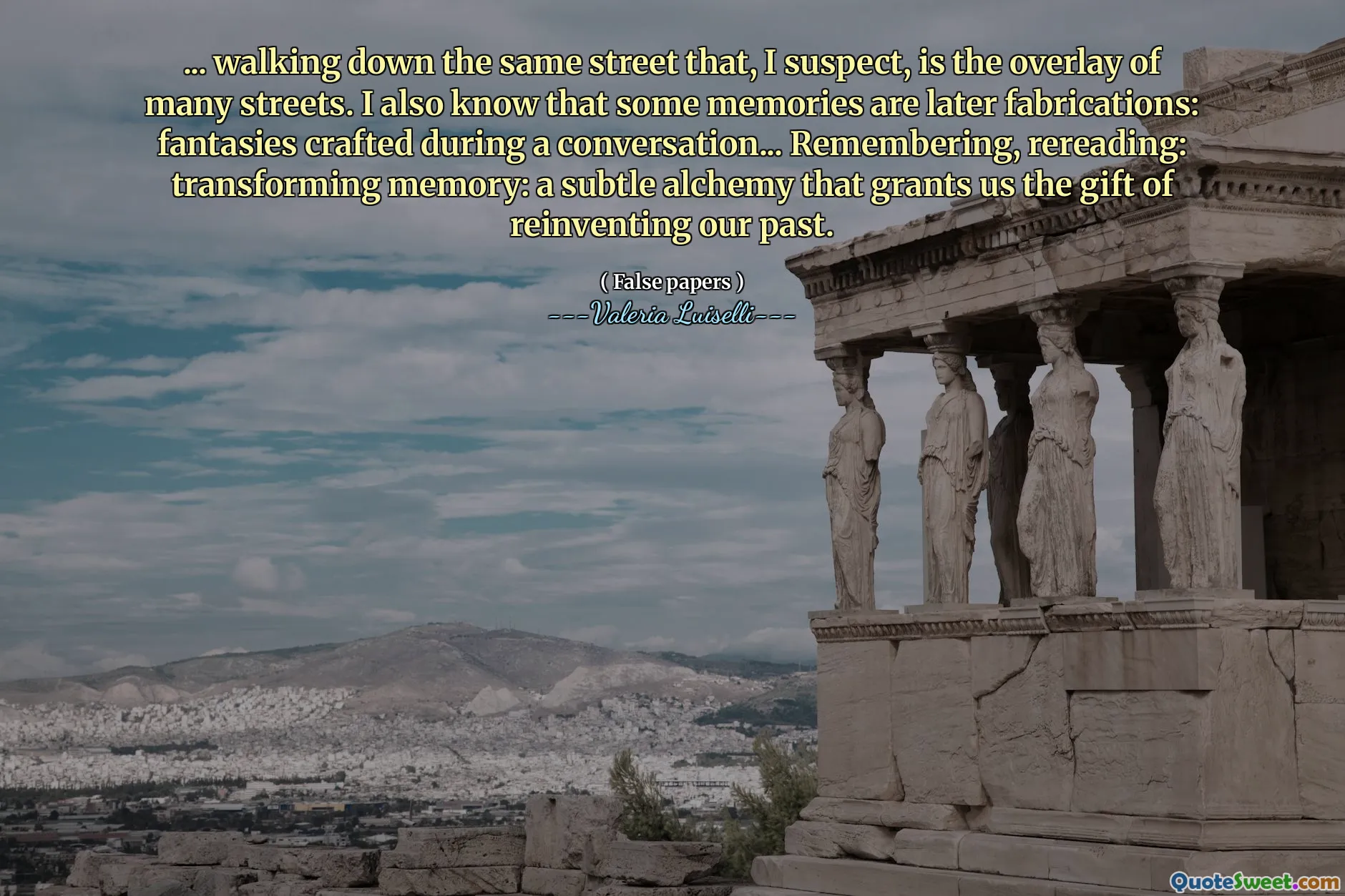
... walking down the same street that, I suspect, is the overlay of many streets. I also know that some memories are later fabrications: fantasies crafted during a conversation... Remembering, rereading: transforming memory: a subtle alchemy that grants us the gift of reinventing our past.
[Markdown format]
This quote beautifully captures the fluid and layered nature of memory and perception. It suggests that our experiences are not static or isolated but are often a complex mosaic of overlapping realities and interpretations. When walking down the same street, the author hints at how this physical space is a composite of many different streets, each perhaps representing different times, moods, or perceptions layered upon one another. This metaphor highlights how our memories may not be concrete recollections but constructions that can be reshaped over time.
The recognition that some memories are later elaborations or fantasies resonates deeply with the idea that human memory is inherently malleable. Memories are often reconstructed rather than retrieved perfectly, influenced by our current emotions, new information, and personal biases. The act of rereading, or revisiting our past, becomes an act of alchemy—the transformation of raw experience into a story that makes sense or serves a purpose in our present context.
This process of reinvention, while sometimes distorting, also grants a kind of creative freedom. It allows us to reinterpret our pasts, find meaning, and perhaps attain closure or new insights. It underscores the importance of perspective in understanding ourselves and our histories and acknowledges the fluidity of identity. Accepting that our memories are constructions rather than fixed truths can be both liberating and challenging, as it invites us to continually redefine who we are based on the stories we choose to tell and how we reinterpret our experiences.
Overall, this quote celebrates the dynamic and inventive power of memory and perception in shaping our personal narratives and self-understanding.






